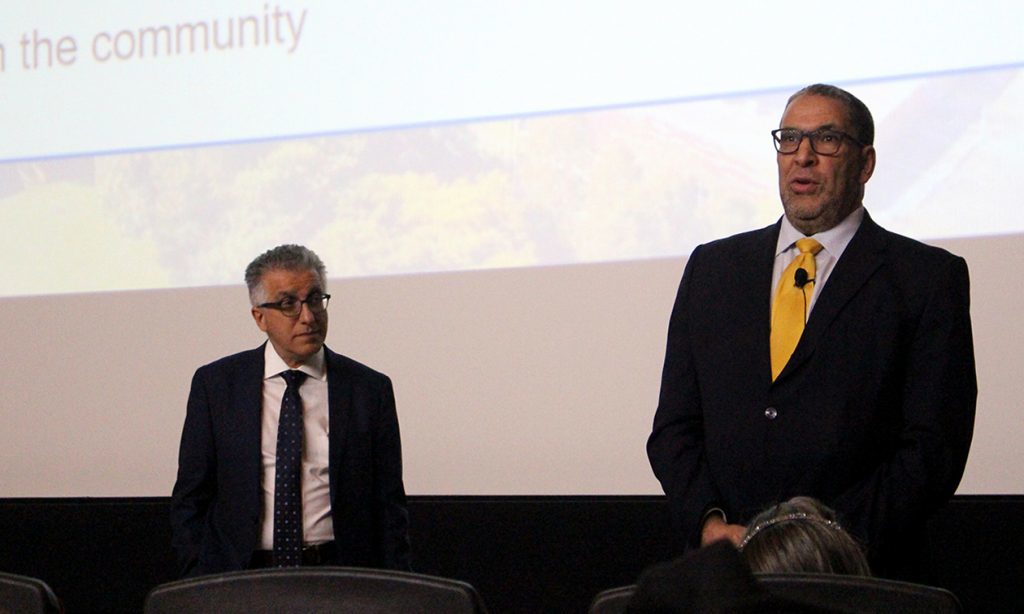
Ryerson’s third and final town hall held to consult the community on budget cuts underscored the school’s commitment to prioritizing student life in the budget process.
“I think you saw on our list of priorities that protecting student experience is at the top of our list,” said provost and vice-president, academic Michael Benarroch in response to a question about how student life will be preserved. “We’re taking a very holistic approach with the cuts.”
The town hall was held Feb. 25 on campus, and attended by about 50 members of the Ryerson community. President Mohamed Lachemi and deputy provost and vice-provost university planning Glenn Craney also spoke at the event.
Sanne Kaas-Mason, the academic initiatives co-ordinator for the Faculty of Community Services, said that the town hall gave her hope the school’s administration will work hard to maintain a good student life at Ryerson, despite having fewer resources to work with.
“We know that the student experience isn’t just sitting in a lecture, retaining academic material. It really is about engaging in your entire learning journey,” Kaas-Mason said. “I’m very encouraged by the fact that it is the intention of the senior administration to prioritize students.”
Kaas-Mason said she attended the town hall “on behalf of the student experience” and is going to keep tabs on the budget process to ensure the administration follows through with their stated promises.
“Externally, as an institution, we’ve been put in a really unfortunate position. So I still am going to be watching this process carefully,” she said.
After the Progressive Conservative government moved in January to reduce Ontario university tuition by 10 per cent, Ryerson will see a net revenue reduction of about $29 million. Students will also be given the option to opt out of paying ancillary fees, such as those that go to student groups.
A vital component of Ryerson’s budget strategy to make up for lost revenue is through heightened recruitment of international students, since the provincial government only has jurisdiction over domestic tuition fees.
When asked about whether he thinks international students will be discouraged from applying to Ryerson as tuition fees increase, Lachemi said it is not solely the responsibility of international students to make up for lost revenue.
“As somebody who came to Canada more than 30 years ago as an international student, I hear your concerns,” Lachemi said. “It is not up to international students to pay for that (funding) gap.”
In an interview with the Ryersonian, Lachemi said the international recruitment strategy for Ryerson has not been finalized. But he said the aim is to get students from different regions of the world, such as eastern Europe, the Middle East, Africa and Latin America.
Benarroch said that money will also be saved through the creation of more supercourses and the creation of Ryerson’s law school, which is set to open in fall 2020.
Nancy Walton, director of the Daphne Cockwell School of Nursing, said that maintaining a good student experience needs to be Ryerson’s top priority when deciding the 2019-20 budget.
“At the end of the day, we’re here for students. There’s lots you can cut, but we have to come back to where this is affecting student experience,” Walton said. “What does that translate to? I don’t know. You’ll still have to make difficult decisions – at some point the student experience will be affected.”
Ryerson’s 2019-20 budget will be finalized by the end of March and approved by the president in April.

